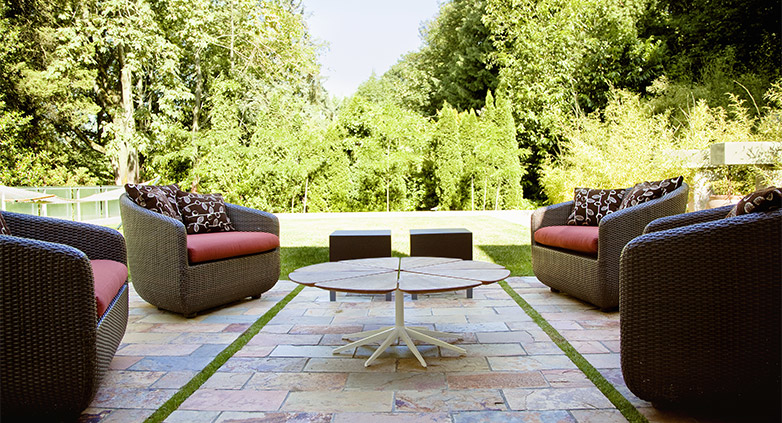Stone Sealers – Essential Protection for Your Stone Surfaces
Stone sealers play a crucial role in maintaining the beauty and durability of stone surfaces. By providing protection against stains and damage, they ensure long-lasting appeal and strength.
Choosing the right stone sealer is essential for preserving the integrity of stone surfaces, whether it’s for a driveway, patio, or indoor flooring. These products work by penetrating the stone’s pores, creating a protective barrier against moisture, oil, and dirt. Not all stone sealers are created equal, though. Some are designed for specific stone types, while others offer enhanced color or a matte finish. The key is to select a sealer that matches the stone’s characteristics and your aesthetic preferences, ensuring a balance between protection and natural beauty.
For a deeper dive into the best stone sealers for your project, including application tips and maintenance advice, continue reading our comprehensive guide.
How Stone Sealers Work
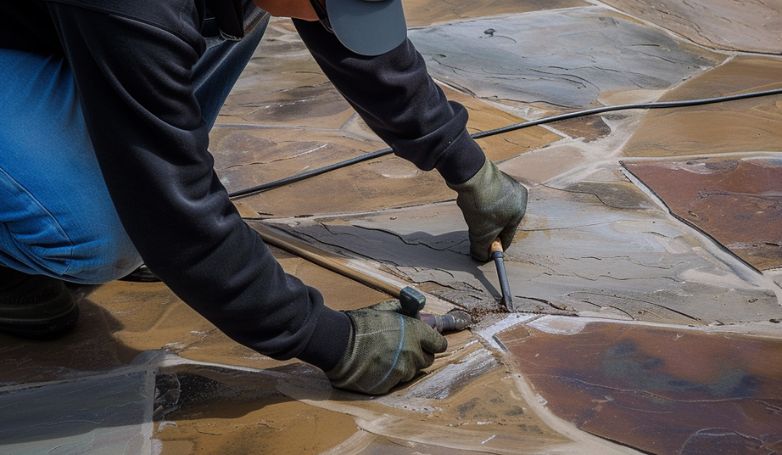
Stone sealers are specifically formulated to penetrate the porous surface of natural stone, filling in the microscopic gaps within. This process effectively blocks the intrusion of water, oils, and other staining agents, preventing them from seeping into the material. Sealers can be either topical, forming a protective layer on the stone’s surface, or impregnating, which penetrates deeply to protect the stone from within. By acting as a barrier, stone sealers maintain the materia’’s pristine condition and extend its life.
Benefits of Sealing Stones
Let’s explore the advantages of using stone sealers, emphasizing how this crucial practice enhances the aesthetic appeal while also fortifying the integrity against everyday wear and tear.
Protection against Stains
The primary advantage of sealing stone surfaces is their enhanced resistance to stains. Natural stone, being porous, is susceptible to staining from spills, oils, and acids. A quality sealer repels these substances, allowing for easy cleanup and preventing permanent discoloration. This is especially beneficial in high-traffic areas or places prone to spills, such as kitchens and bathrooms.
Enhanced Durability
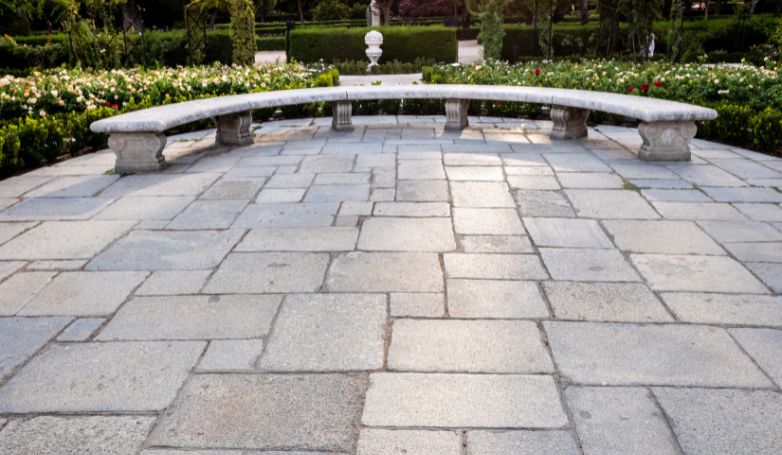
Sealing your stone surfaces not only protects them from stains but also contributes to their overall durability. By preventing moisture penetration, sealers reduce the risk of cracking, chipping, and erosion over time. This is particularly important for outdoor stone surfaces exposed to harsh weather conditions, as it helps them withstand the elements more effectively.
Preservation of Natural Appearance
Applying a sealer to stone surfaces can also help preserve their natural beauty and finish. Some sealers enhance the color, making it more vibrant, while others offer a matte finish that maintains the stone’s original appearance. Additionally, sealing helps prevent the buildup of grime and mold, ensuring that the surface remains visually appealing for years to come.
Types of Stone Sealers
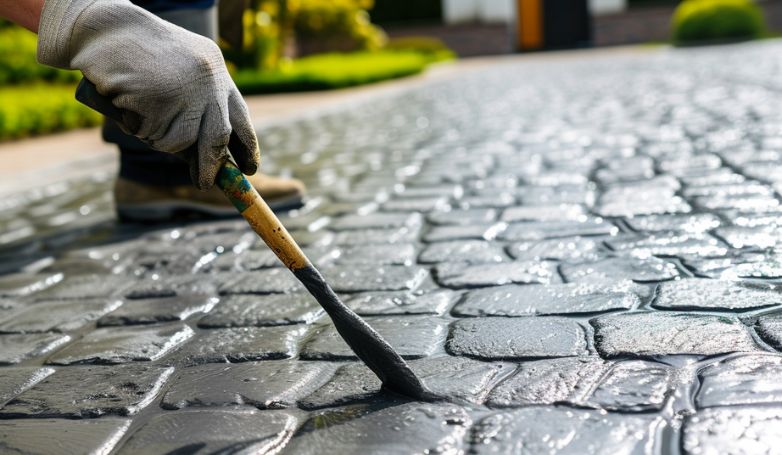
Each type of stone sealer offers unique benefits and is suited for different applications, depending on the stone’s location, usage, and the desired aesthetic.
Penetrating Sealers
Penetrating sealers, as their name suggests, are designed to penetrate deep into the stone’s surface. They provide protection from within by filling the stone’s pores, thus preventing staining agents from entering. These types of sealers are ideal for high-traffic areas because they do not alter the stone’s natural look or feel. They’re especially recommended for interior surfaces where the preservation of the stone’s original appearance is desired.
Surface Sealers
Surface sealers work by forming a protective film on the surface of the stone. This film acts as a barrier against water, oil, and other potential staining substances. Surface sealers are known for enhancing the stone’s color and providing a glossy finish, making them popular for use on decorative stone surfaces. However, they may require more frequent reapplication than other types of sealers, as the protective layer can wear away over time with foot traffic or weather exposure.
Impregnating Sealers
Impregnating sealers offer a comprehensive solution by penetrating the stone’s surface and providing protection from both within and on the surface. They are highly effective against a wide range of staining agents, including oil and water-based spills. Impregnating sealers are particularly suited for outdoor stone surfaces or areas exposed to harsh weather conditions, as they provide long-lasting durability and protection without altering the natural appearance of the stone.
Each type of stone sealer serves a specific purpose, and the choice between them depends on the specific needs of your stone surfaces.
Choosing the Right Stone Sealer
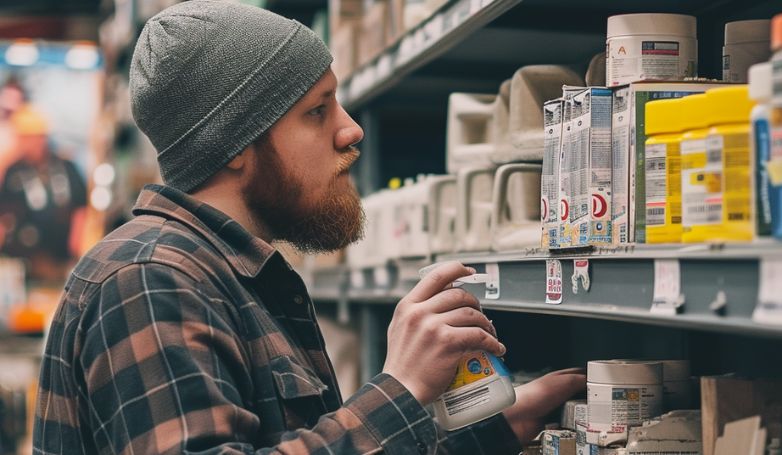
Selecting the appropriate stone sealer for your project is crucial for ensuring optimal protection, durability, and aesthetic appeal of your stone surfaces. When deciding, it’s important to take into account the following essential factors:
Consideration of Stone Type
Various kinds of stone exhibit differences in porosity and density, factors that play a role in determining their susceptibility to staining and weathering. For instance, porous stones like limestone and sandstone require a sealer that can penetrate deeply to offer maximum protection. In contrast, denser stones like granite may benefit more from a surface sealer that enhances their natural colors while providing a protective layer. Understanding the characteristics of the stone you’re working with is the first step in choosing the right sealer.
Environmental Factors
The environment where the stone is located plays a significant role in selecting a sealer. For outdoor applications, consider a sealer that provides strong resistance to weather elements such as UV rays, rain, and freeze-thaw cycles. Indoor stone surfaces, especially in kitchens and bathrooms, require sealers that can withstand exposure to oils, acids, and frequent cleaning. Evaluating the environmental demands on your stone will guide you in selecting a sealer that can withstand those specific challenges.
Application Method
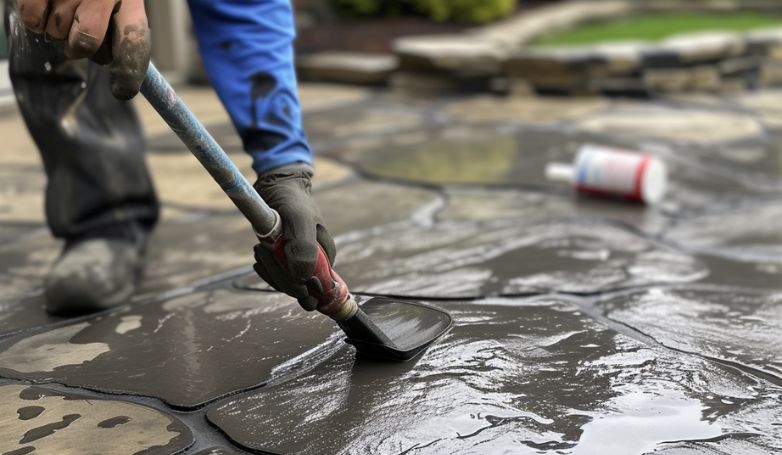
The ease of application and the method required can also influence your choice of sealer. Some sealers can be applied with a simple brush or roller, making them ideal for DIY projects, while others might need professional-grade equipment for application. Additionally, consider the drying and curing times, which can vary significantly between products. Opting for a sealer that aligns with your application preferences and project timeline can ensure a smooth and successful process.
Longevity and Maintenance
Finally, consider the longevity of the sealer and the maintenance it will require over time. Some sealers offer longer-lasting protection but may need a more complex application process, while others might require regular reapplication but are easier to apply. Assessing how often you’re willing to reapply the sealer and the level of maintenance you can commit to will help in choosing a sealer that balances durability with upkeep requirements.
By carefully considering these factors—you can select the right stone sealer that not only protects your surfaces but also maintains their beauty for years to come.
The 10 Best Stone Sealer
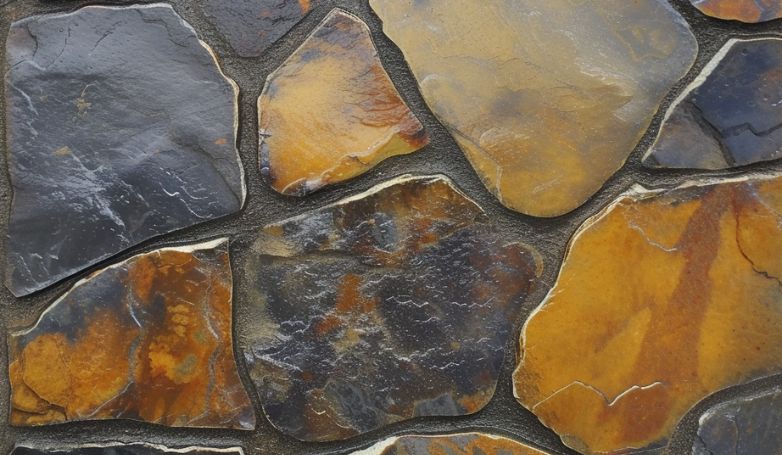
Selecting the right stone sealer is crucial for protecting and preserving the natural beauty and integrity of your surfaces. Here are the top 10 products that stand out for their effectiveness, durability, and ease of application:
1. Granite Gold Sealer
Designed specifically for granite surfaces, Granite Gold Sealer offers a robust solution to protect against spills and stains. Its non-toxic, biodegradable formula not only seals surfaces effectively but also maintains the natural look and feel of the stone, making it a safe choice for kitchens and bathrooms.
2. Black Diamond Stoneworks Granite Sealer
Perfect for both interior and exterior stone surfaces, Black Diamond Stoneworks Granite Sealer provides a professional-grade barrier against moisture and stains. Its easy-to-apply, non-corrosive formula ensures long-lasting protection for granite, marble, and other natural stones, enhancing their resilience and appearance.
3. Miracle Sealants 511 Impregnator
Miracle Sealants 511 Impregnator sealer is renowned for its industrial-grade protection. This versatile sealer penetrates deeply into stone surfaces, providing a durable shield against water, oil, and stains without altering the natural texture or color of the stone, suitable for a wide range of stone types.
4. TriNova Granite Sealer & Protector
TriNova’s Granite Sealer & Protector offers dual-action protection by sealing and enhancing the natural beauty of stone surfaces. Its advanced formula not only prevents stains and soil accumulation but also enriches stone colors, making it ideal for granite, marble, and slate in high-traffic areas.
5. StoneTech BulletProof Sealer
StoneTech’s BulletProof Sealer stands out for its advanced, microbond protection. It offers maximum penetration and durability against stains and erosions on natural stone surfaces. This product is particularly effective for marble, granite, and limestone, providing a strong, invisible layer of protection without compromising the stone’s natural finish.
6. Aqua Mix Sealer’s Choice Gold
Aqua Mix Sealer’s Choice Gold is a premium, no-sheen, natural look sealer formulated for exceptional performance. It offers superior protection against both oil and water-based stains, ensuring the natural beauty of the stone lasts. Ideal for use in food areas and high-moisture environments, it’s suitable for all types of natural stone.
7. Tuff Duck Granite, Grout, and Marble Sealer
Tuff Duck’s sealer is specially formulated for granite, grout, and marble, offering a unique blend of protection without changing the natural appearance of the surface. Its penetrating formula provides comprehensive coverage against stains and moisture, ensuring long-lasting durability and beauty for both interior and exterior surfaces.
8. 511 Porous Plus Penetrating Sealer
The 511 Porous Plus Penetrating Sealer is designed for the most porous stone surfaces, offering enhanced protection against water, oil, and stains. Its advanced formula ensures deep penetration, providing long-lasting durability and preserving the natural look of the stone. Ideal for countertops, bathrooms, and outdoor applications.
9. Tenax Proseal Granite Sealer
Specifically designed for granite and other high-density stones, Tenax Proseal Granite Sealer delivers exceptional protection against staining and corrosion. This professional-grade sealer penetrates deeply to provide a durable, invisible barrier, ensuring the stone’s natural color and texture remain unaltered.
10. Supreme Surface Granite, Quartz, and Marble Treatment
Supreme Surface Treatment offers a revolutionary all-in-one solution for granite, quartz, and marble surfaces. This innovative product cleans, polishes, and seals simultaneously, providing a protective barrier against stains and water spots while enhancing the natural beauty of the stone with a smooth, radiant finish.
Step-by-Step Guide for Applying Stone Sealers
Applying a stone sealer correctly is essential for maximizing its protective qualities and ensuring the longevity of your surfaces. Follow this step-by-step guide to ensure a successful application:
Surface Preparation
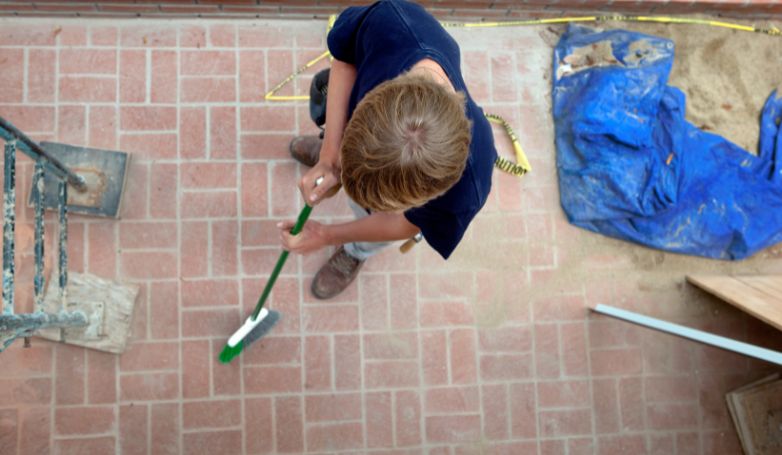
Before applying any sealer, the stone surface must be clean, dry, and free of any previous sealants or coatings. Start by thoroughly cleaning the surface with a suitable cleaner to remove dirt, grime, and any oily residues. For outdoor applications, consider using a pressure washer for a deeper clean. Allow the stone to dry completely for at least 24 hours, as moisture can affect the sealer’s effectiveness.
Application Process
Once the surface is prepared, apply the sealer evenly using a low-pressure sprayer, roller, or brush, depending on the manufacturer’s recommendations. Work in small sections to ensure thorough coverage, using a lint-free cloth to wipe away excess sealer. Pay special attention to grout lines and edges, as these areas are often more porous and may require additional product to fully seal.
Drying and Curing Time
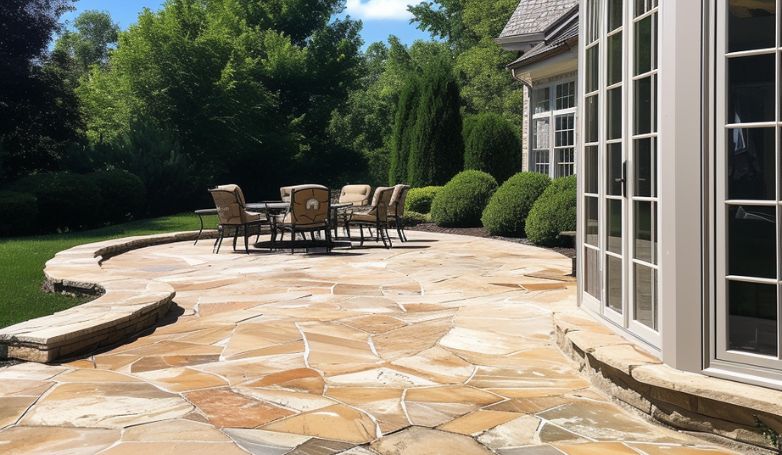
The drying time can vary depending on the sealer type, stone material, and environmental conditions. Typically, the surface will be touch-dry within a few hours, but it may take 24 to 72 hours for the sealer to fully cure. Avoid walking on or placing anything on the surface during this time to ensure the sealer cures evenly and effectively.
Additional Coats (if necessary)
Some stone surfaces, especially those that are more porous, may require a second coat for optimal protection. Check the sealer’s instructions to determine if additional coats are recommended. If so, apply the second coat in the same manner as the first, after the initial coat has dried but before it has fully cured, typically within a few hours to ensure proper adhesion and maximum protection.
Common Mistakes to Avoid
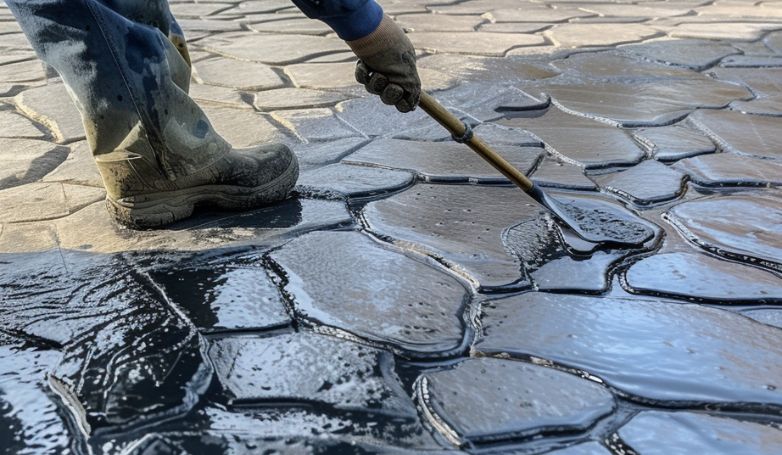
When sealing stone surfaces, certain pitfalls can compromise the effectiveness of the sealer and the integrity of the stone. Being aware of these common mistakes can help ensure a smooth and successful sealing process.
Overapplication
Applying too much sealer can lead to a host of problems, including a cloudy or streaky appearance and a reduction in the stone’s ability to breathe, potentially trapping moisture within. To avoid overapplication, apply the sealer in thin, even coats, following the coverage guidelines provided by the manufacturer. Allow each coat to fully absorb into the stone before deciding if additional coats are necessary.
Ignoring Manufacturer Recommendations
Manufacturers provide specific instructions regarding the application process, drying times, and suitability of the sealer for different stone types for a reason. Ignoring these recommendations can result in inadequate protection, damage to the stone, or the sealer not adhering correctly. Always read and follow the manufacturer’s guidelines to ensure the best results.
Using the Wrong Sealer for the Stone Type
Different stones have varying levels of porosity and may react differently to certain sealers. Using the wrong type of sealer can either be ineffective or, worse, damage the stone. For example, a sealer designed for dense granite may not penetrate a more porous stone like limestone effectively. Research and select a sealer that is compatible with your specific stone type to ensure optimal protection and preservation of the stone’s natural beauty.
Maintenance Tips for Sealed Stones
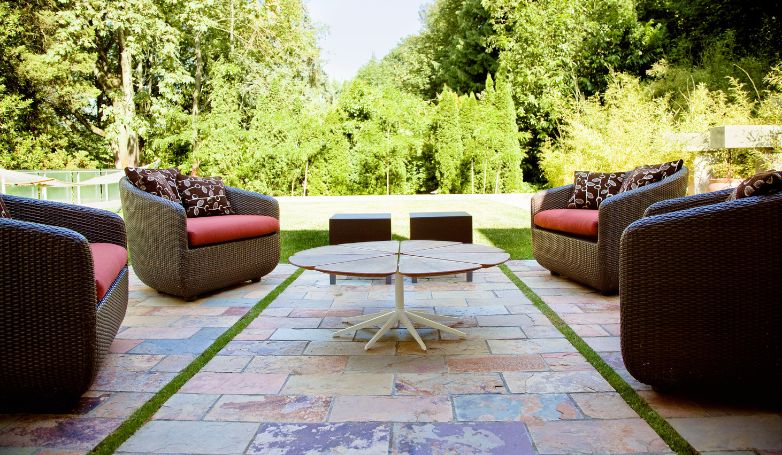
Maintaining sealed stone surfaces is crucial to preserving their beauty and extending the life of the sealer. Here are some essential tips to keep your sealed stones looking their best.
Regular Cleaning Practices
For daily maintenance, use a soft cloth or mop and a mild detergent to clean the surface, avoiding acidic or abrasive cleaners that can wear away the sealer and damage the stone. Flush with fresh water to eliminate any lingering soap residue. For outdoor stone, sweeping and occasional gentle washing can prevent dirt accumulation and moss growth.
Periodic Sealer Reapplication
Even the best sealers wear down over time, especially in high-traffic areas or outdoor environments exposed to the elements. Periodically reapplying the sealer, typically every one to three years, can ensure continuous protection. Always clean the surface thoroughly and check the manufacturer’s recommendations before reapplying to ensure compatibility and effectiveness.
Addressing Stains Promptly
While sealers provide a protective barrier, spills should still be cleaned up promptly to prevent staining. For oil-based spills, use a poultice or a specific stone cleaner designed for oil stains. For water-based spills, wiping up the liquid quickly and cleaning the area with a mild detergent usually suffices. Regular inspection for stains and addressing them promptly can keep your sealed stone surfaces in pristine condition.
FAQs about Stone Sealers
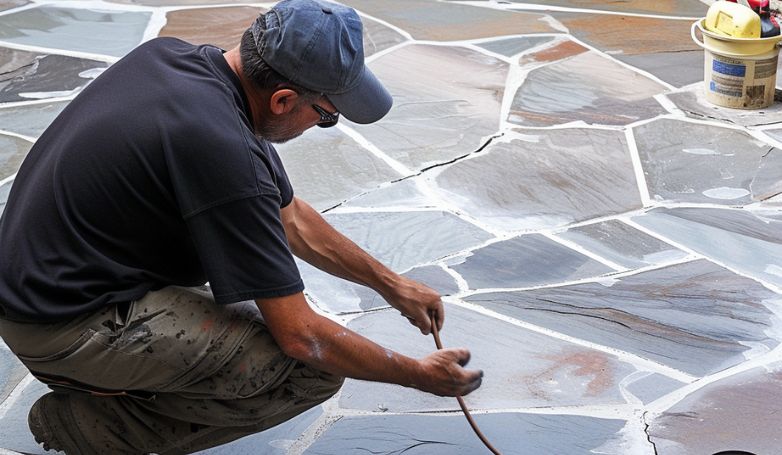
Here are answers to some frequently asked questions to help guide your decision-making process:
What is best to seal stone?
The best sealer for stone depends on the type of stone and its location (indoors or outdoors). For dense stones like granite, a penetrating sealer is ideal as it protects without altering the appearance. For more porous stones like limestone, an impregnating sealer that offers deeper penetration might be best. Always consider the specific needs of your stone and the manufacturer’s recommendations.
What does a stone sealer do?
A stone sealer provides a protective layer on the stone’s surface or penetrates the stone to protect it from within. It helps prevent stains, water damage, and erosion by creating a barrier against moisture, oil, and other staining agents, thereby extending the life and preserving the natural beauty of the stone.
What stone sealer lasts the longest?
Impregnating sealers generally last the longest because they penetrate deep into the stone, offering durable protection against stains and moisture. These sealers can last several years before reapplication is needed, depending on the stone’s exposure to wear and environmental conditions.
What is the best penetrating sealer for natural stone?
The best penetrating sealer for natural stone is one that not only offers deep protection against stains and moisture but also preserves the stone’s natural appearance. Products like Tuff Duck Granite, Grout, and Marble Sealer or StoneTech BulletProof Sealer are highly recommended for their effectiveness in protecting a variety of natural stones.
How long does sealer last on stone?
The longevity of a sealer on stone varies depending on the type of sealer, the stone’s porosity, and environmental exposure. On average, a quality sealer can last from one to five years. High-traffic areas or outdoor stones exposed to harsh weather may require more frequent reapplication. Always follow the manufacturer’s guidance on sealer longevity and reapplication intervals.
Conclusion
Choosing and applying the right stone sealer is pivotal in protecting the natural beauty and longevity of stone surfaces in your home or commercial space. Understanding the different types of sealers, along with the specific needs of your stone, ensures that you select the best product for your project. Regular maintenance and prompt attention to spills and stains will help preserve the stone’s appearance and the effectiveness of the sealer over time. Whether you’re sealing a brand-new installation or maintaining an existing stone surface, the right knowledge and care can make all the difference. With the guidance provided in this article, you’re well-equipped to keep your stone surfaces protected and looking their best for years to come.

